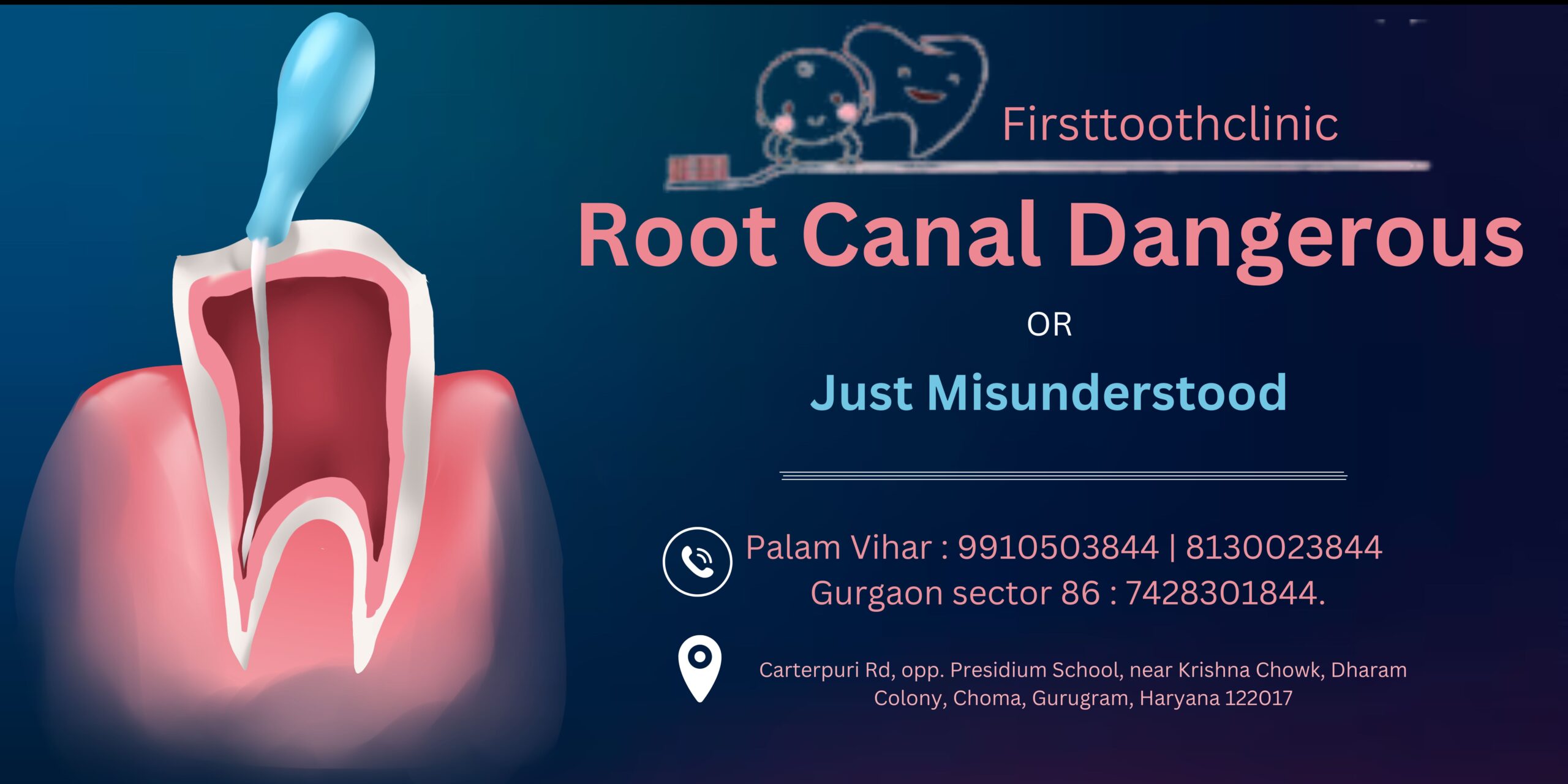
When it comes to dental procedures, few strike fear into the hearts of patients quite like the mention of a root canal. However, the question that lingers in the minds of many is whether root canals are genuinely dangerous or just misunderstood?
In this blog, we will explore the truth behind root canals and debunk some of the misconceptions surrounding this vital dental treatment.
Firstly, it is essential to understand what a root canal actually is and why it is necessary. Root canal treatment becomes necessary when the pulp of a tooth becomes infected or inflamed due to deep decay, repeated dental procedures, or trauma to the tooth. The pulp contains nerves, blood vessels, and connective tissue that play a crucial role in the tooth’s development. When it becomes infected, the pain can be excruciating, and the infection can spread to other parts of the mouth, leading to more severe oral health issues.
The root canal procedure involves removing the infected or inflamed pulp, cleaning and disinfecting the inner chamber of the tooth, and then filling and sealing it to prevent further infection. This treatment not only relieves the patient’s pain but also saves the natural tooth, which is always the best option whenever possible.
Now, let’s address some of the common misconceptions about root canals:
- Root Canals Are Painful: This is one of the most widespread myths surrounding root canals. In reality, root canal procedures are performed under local anesthesia, ensuring that patients feel little to no pain during the process. The pain associated with root canals actually comes from the infection itself, and the procedure helps alleviate that pain.
- Root Canals Cause Illnesses: There have been claims linking root canals to various systemic health issues, but there is no scientific evidence supporting this. Root canal treatment is a safe and standard dental procedure, and any concerns about systemic health problems are unfounded.
- Extraction Is a Better Option: Some patients may consider extracting the affected tooth rather than getting a root canal. However, it is crucial to understand that losing a natural tooth can lead to a host of other problems, including misalignment of adjacent teeth and bone loss. Preserving the natural tooth through a root canal is often the best long-term solution for oral health.
Now that we’ve addressed some of the myths, let’s focus on finding the right dental clinic, especially for those seeking the best dental clinic in Gurgaon.
Finding the right dental clinic is essential to ensure a positive and successful root canal experience.
For right dental clinic is essential here are some tips to consider:
- Reputation: Research the reputation of dental clinics in Gurgaon by reading online reviews and testimonials. Look for clinics with a track record of performing successful root canal treatments.
- Experience and Expertise: Choose a clinic with experienced dentists who have expertise in performing root canals. Check their qualifications and certifications to ensure you are in safe hands.
- Advanced Technology: Look for clinics that invest in modern dental technology, as this can improve the efficiency and effectiveness of the root canal procedure.
- Patient Comfort: A good dental clinic should prioritize patient comfort and care. Ensure that the clinic has a friendly and supportive staff to make your experience as pleasant as possible.
In conclusion:
Root canals are not dangerous but are often misunderstood. They are essential procedures that can save natural teeth and alleviate pain caused by infected dental pulp. When performed by experienced dentists, root canals are safe and highly effective.If you find yourself in need of a root canal or any other dental procedure, it is crucial to choose the right dental clinic in Gurgaon, especially if you have children and require a kids dental clinic in Gurgaon.
Remember, taking care of your oral health is essential for your overall well-being. So, don’t let misconceptions prevent you from seeking the dental care you need for a healthy and confident smile.
Also Read: Optimizing Dental Implant Surgery Recovery: Tips and Guidelines



